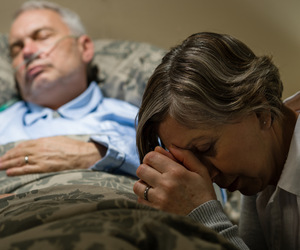Medical Marijuana For Huntington's Disease
Have your treatments and medications to help manage your Huntington's Disease symptoms reached a point where you believe they are no longer effective? In order to help you through your psychiatric ailments brought on by Huntington's Disease, these cognitive symptoms can be eased through using medical marijuana. Cross Valley Health & Medicine's Doctor Paul Saladino and Christian Plaza, FNP are able to certfy those who qualify for the New York State Medical Marijuana Program. Based out of Newburgh NY, both practitioners can see you either in-person or virtually through telemedicine. Medical marijuana might be an alternative treatment method for you to explore. Start your exploration today by clicking below. *

What is Huntington's Disease?
Huntington's Disease causes the breakdown of nerve cells in the brain. People who suspect they have developed Huntington's Disease, often by family inheritance, can be classified under a movement, cognitive, and/or psychiatric disorder.
Movement disorders are typically noticed when a person has involuntary movements, slow eye movement, impaired gait, or difficulty with speech.
Cognitive disorders are noticeable behaviors that are noticed by family and friends. Behaviors such as lack of awareness, slowness in processing thoughts, unable to learn new information, or cannot focus on tasks can be signals of concern.
Psychiatric disorders tend to be more of the inside workings of a person. When nerve cells in the brain begin to die off, insomnia, social withdrawal and depression can begin to come to the surface. The person may have no idea this is happening to them as well.
Since these changes in a person's behavior can be the result of many different illnesses, it's best to see a practitioner right away.
What is the typical treatment for my Huntington's Disease?
Medical professionals have not developed a cure for Huntington's Disease, but there are several treatment options out there that can help manage symptoms. Depending on if the problem was either movement-related or cognitive-related, the treatment plan will be designed to help treat those disorders.
For movement disorders, some practitioners may prescribe a medication named Xenazine (tetrabenazine), which is the first medication approved by the U.S.Food and Drug Administration specifically for Huntington's Disease. For other movement-related disorder medication treatment options, practitioners may prescribe Risperdal (risperidone), Haldol (haloperidol), or Thorazine (chlorpromazine). For cognitive disorders, practitioners may prescribe medications like Lexapro, Prozac, or Zoloft for those with depression. For those who developed violent outbursts or mood disorders, Seroquel (quetiapine) may be prescribed.
How can medical marijuana help Huntington's Disease symptoms?
Medical marijuana has the potential to make the person with Huntington's Disease feel more relaxed but has not been proven to cure the disease yet. Since there is no known cure for Huntington's Disease, most of the listed treatment plans all involve how to make the patient feel as comfortable as possible. This makes the use of medical marijuana potentially effective since it can reduce anxiety, nausea, and even depression in patients who have Huntington's Disease.
Who is Cross Valley Health & Medicine?
Cross Valley Health & Medicine is a primary care practice located in Newburgh NY, allowing for both virtual and in-person appointments. The practice has two medical providers on staff, Doctor Paul Saladino who is dual board-certified in Addiction Medicine and Internal Medicine and a Christian Plaza, who is a family nurse practitioner. Both practitioners are eager to see new patients for the following programs: Substance Abuse Treatment, Behavioral Health Management, HIV/AIDS Care Management, Primary Care, Medical Marijuana Certifications, Medication-Assisted Treatment, STD/STI Care Management, and Weight Loss Management. If you are interested in becoming a patient of Cross Valley, please click here to access our online paperwork portal. Visit us online at www.crossvalleyhealth.com or give our office a call at 845-561-7075.
*Any information listed on this page is provided for medical educational purposes only, and shall not be taken as medical advice provided by Cross Valley Health & Medicine. Any medications listed on this page are also provided for medical educational purposes only, and the use of any of these mentioned medications should stem from consulting with your provider.
